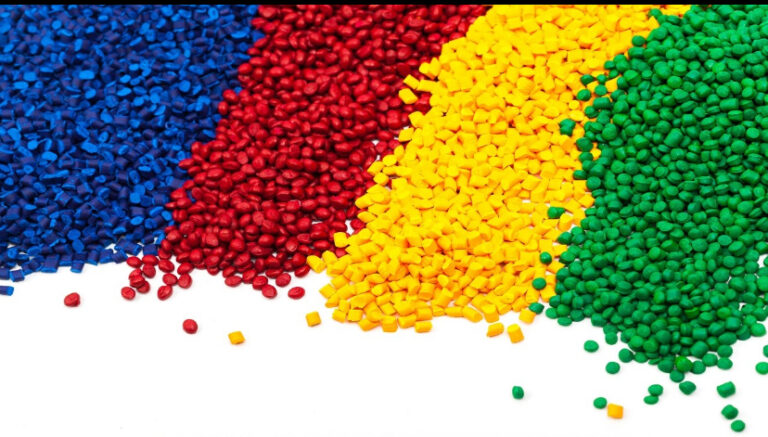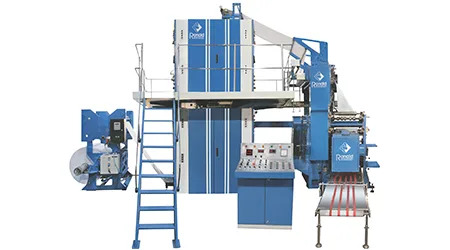Introduction: Why Choosing the Right Heat Exchanger Matters
Heat exchangers are key equipment in various industries ranging from power generation to food processing. They make a central function of thermal energy exchange management possible to enable systems to operate efficiently and effectively. Proper selection of the heat exchanger manufacturers is very critical to enable it to operate with maximum efficiency, cost-effectiveness, and overall long-term dependability in industries.
Regardless of your profession in HVAC, manufacturing, chemical processing, or the renewable energy sector, the wrong heat exchanger is too costly. Inefficiency, higher maintenance costs, and even downtime are some of the issues you can anticipate facing. This comprehensive guide delves into different types of heat exchangers, selection criteria, and industrial requirements to make the right decision.
Understanding the Role of Heat Exchangers in Industrial Processes
How Heat Exchangers Work
A heat exchanger is a device that conveys heat from a single or multiple fluids without mixing them. It is a fundamental operation for process temperature control, energy recuperation, and waste heat elimination in industrial processes in a wide range of industries. The basic operation is one fluid imparting heat to another by contact or via a partition wall.
Common Industries That Rely on Heat Exchangers
- HVAC Systems: To heat and cool.
- Power Plants: To efficiently convert energy.
- Food Processing: To chill and sterilize.
- Chemical Production: To regulate reaction temperatures.
- Automotive and Aviation: To cool engines and fuel systems.
Key Benefits of Efficient Heat Exchangers
- Improves Energy Efficiency: Saves operational costs through optimal heat transfer.
- Promotes Heat Recovery: Allows for efficient operation through recuperation of wasted heat.
- Increases Machinery Life: Saves industrial equipment and machinery from overheating.
- Decreases Carbon Emissions: Saves the environment from damage through less energy consumption.
Types of Heat Exchangers and Their Industrial Applications
Shell and Tube Heat Exchangers
Definition: Contains a set of tubes within a huge shell. One fluid flows within the tubes, and the other near the tubes to enable heat transfer.
Applications:
- Power plants
- Chemical processing
- Oil refineries
Advantages:
- Works at extreme pressure and temperature
- Long-lasting and extremely long-lasting
Disadvantages:
- Extremely large and requires large installation space
- High maintenance cost
Plate Heat Exchangers
Description: Thin, corrugated plates stacked upon each other to provide effective heat transfer.
Applications:
- HVAC systems
- Food and beverage processing
- Pharmaceuticals
Advantages:
- Effective and space-saving heat transfer
- Easy to clean and maintain
Disadvantages:
- Prone to leaks in comparison to shell and tube types
- Inapplicable for high-pressure applications
Air-Cooled Heat Exchangers
Description: Employ ambient air instead of water or other fluids to reject heat.
Applications:
- Off-site sites where water is not available
- Renewable energy and automotive cooling applications
Advantages:
- Conserves water
- Low maintenance requirements
Disadvantages:
- Less efficient at high temperatures
- Require large fans, hence more energy usage
Double Pipe Heat Exchangers
Description: Consist of one pipe inside another, to permit fluid flow in opposing directions.
Applications:
- Preheating oil and gas
- Waste heat recovery
Advantages:
- Low in cost and simple in design
- Simple installation and maintenance
Disadvantages:
- Limited to small-scale use
- Less efficient compared to contemporary heat exchangers
Spiral Heat Exchangers
Description: With spiral, coiled passages for enhancing the efficiency of heat transfer.
Applications:
- Wastewater treatment
- Chemical industry
- Heavy-duty processing
Advantages
- Self-cleaning and fouling-resistant
- Suitable for processing high-viscosity fluids
Disadvantages:
- Higher installation initial cost
- Requires special service
Evaluating Heat Transfer Efficiency and Performance
Thermal Efficiency Ratings
Thermal exchanger designs of various categories have varying efficiency of heat transfer coefficients. Higher surface area provides higher exchange rates of heat, thereby enhancing the efficiency of the system.
Pressure Drop Factors
Heavy pressure drop decreases the system efficiency as well as the energy charge. Flow design should be appropriate to experience minimum energy loss and maximum performance.
Factors to Consider When Selecting a Heat Exchanger
Temperature and Pressure Requirements
Make sure the exchanger will be capable of handling operating pressures and temperatures of your process. High pressure applications will most likely require rugged constructions like tube and shell design.
Fluids and Flow Rates
Take care regarding the chemical nature of corrosion inhibiting fluids to be employed for compatibility. The exchanger should also be sized for the necessary flow rate to achieve maximum efficiency.
Space and Installation Constraints
Plate heat exchangers consume less space and can be applied where the available spaces are narrow, while shell and tube type occupy more space for installation but can withstand heavy loads.
Maintenance and Cleaning Requirements
Some of the exchangers, like spiral ones, are less likely to foul and require less maintenance. Consider how simple it is to disassemble for maintenance purposes when selecting a heat exchanger.
Energy Efficiency and Cost Considerations
Efficient units will probably cost more to buy but can save money in the long run. Consider energy savings throughout the equipment’s life when making an economic choice.
Common Challenges and Troubleshooting Tips
Scaling and Fouling Issues
Scalts due to minerals and fouling should be prevented by conducting routine maintenance. Secondly, antifouling paint reduces fouling potentialities.
Corrosion and Material Degradation
Use materials like stainless steel or corrosion-resistant alloys in extreme conditions. Conduct tests occasionally to inspect for indicators of pitting and rusting to prevent material degradation.
Heat Loss and Efficiency Deficit
Maximize effectiveness with minimum loss of heat by optimized flow and insulation design. Optimal operating performance is ensured by frequent examination, and every loss is indicated early.
Industrial-Specific Choice of Heat Exchanger Problems
HVAC and Refrigeration
Heat recovery ventilation (HRV) is especially important for maximization of the indoor climate control. Heat exchanger choice might be crucial for energy efficiency for HVACs.
Oil and Gas Processing
Explosion-proof, high-pressure heat exchangers are extremely prevalent in oil and gas processing. How well the heat exchanger performs under harsh conditions is of paramount importance to safety and operation.
Food and Beverage Industry
FDA and sanitation compliance is essential in the food and beverage industry. The heat exchangers must be cleanable and not prone to contamination.
Renewable Energy and Power Plants
Heat exchangers are of utmost significance to the enhancement of efficiency in conversion of solar and geothermal energy into renewable energy. Proper selection of an appropriate heat exchanger can maximize the efficiency of entire renewable energy systems.
Comparison of Heat Exchanger Manufacturers and Solutions
What to Consider When Choosing a Manufacturer
Ensure that the manufacturer is ASME and ISO compliant. Ensure that suppliers that offer custom solutions to meet your one-of-a-kind needs.
New Trends in Heat Exchanger Technology
- IoT-Based Monitoring: Allows predictive maintenance by real-time monitoring of the heat exchangers.
- Advanced Materials: Make them more efficient and durable, hence a more efficient and durable heat exchanger.
Conclusion: Making an Informed Decision
Choosing the right heat exchanger is a delicate task that is performed considering an abundance of factors like thermal efficiency, maintenance needs, installation space, and industry requirements. Having experience with various kinds of heat exchangers and applications, bearing in mind the performance parameters, and taking industry demands into consideration, you are capable of choosing wisely that maximizes performance, life, and economy.
Having expert heat exchanger manufacturers onboard who can give you custom solutions and meet industrial standards can also enhance your industrial systems’ reliability and efficiency. If you are in the HVAC, chemical processing, or renewable energy industry, the right heat exchanger can be a game-changer for your company.
What factors do you take into consideration while selecting a heat exchanger? We’d love to hear from you in the comments below!







